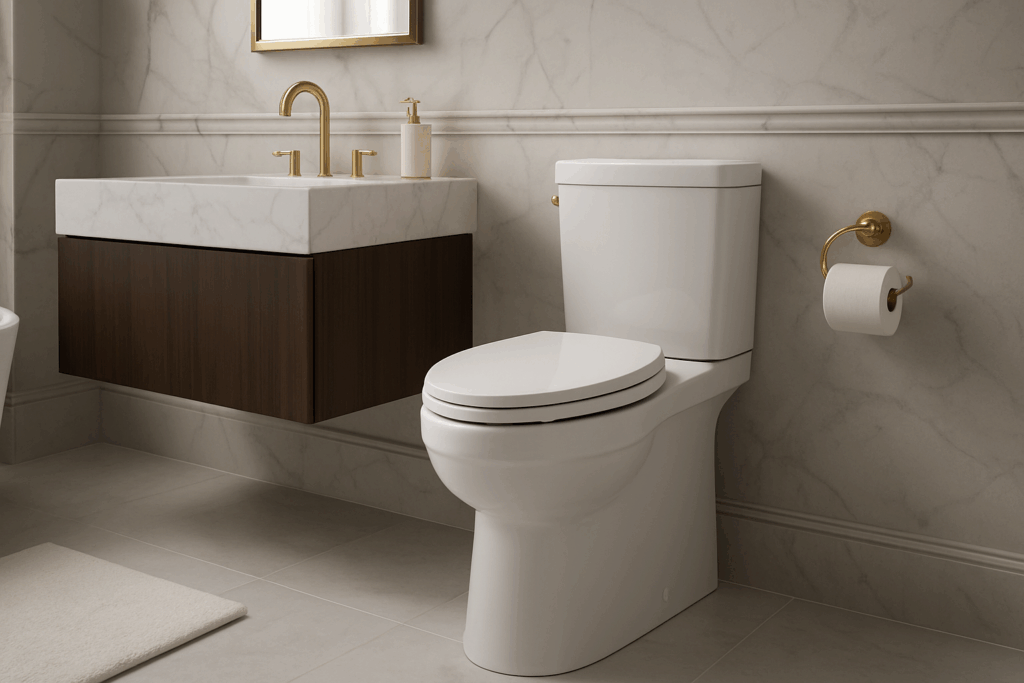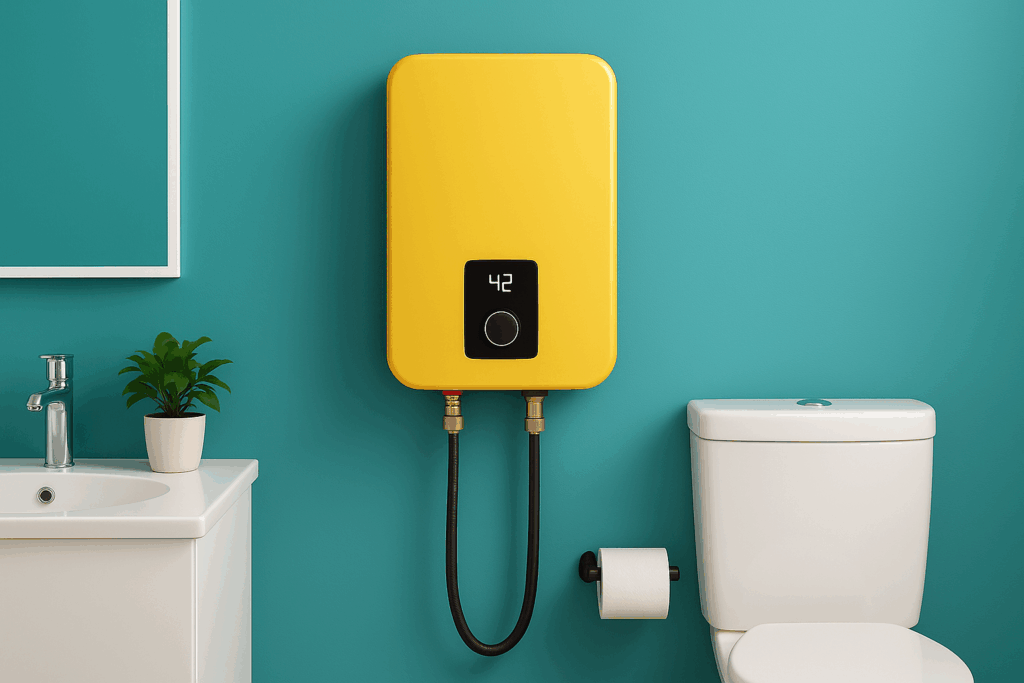Efficient plumbing maintenance is the backbone of a comfortable and cost-effective home. Wasting water or energy not only increases utility bills but also impacts the environment. Homeowners across the United States are increasingly looking for smart ways to improve water efficiency, extend the lifespan of plumbing systems, and reduce maintenance costs.
With simple upgrades and regular care, plumbing can be transformed into a system that saves money while running smoothly year-round. These 11 smart plumbing maintenance tips provide practical steps that improve performance, prevent costly repairs, and contribute to sustainable living.
1. Fix Leaky Faucets Immediately
A dripping faucet may seem like a small issue, but it wastes gallons of water over time. In fact, a single faucet leaking once per second can waste over 3,000 gallons in a year.
- Water waste increases utility bills significantly.
- Leaks can indicate deeper plumbing problems if ignored.
- Quick solutions include replacing worn-out washers or O-rings.
When leaks persist, professional help ensures long-lasting fixes and prevents further damage.
2. Install Low-Flow Fixtures
Modern plumbing fixtures are designed to reduce water use without sacrificing performance. Installing low-flow faucets, showerheads, and dual-flush toilets can lower consumption dramatically.
- Low-flow showerheads save up to 2,000 gallons per year.
- Dual-flush toilets reduce water usage by nearly 67% per flush.
- Faucets with aerators provide strong water pressure while conserving water.
These fixtures are affordable, easy to install, and provide long-term savings.
3. Insulate Pipes for Energy Savings
Uninsulated pipes lose heat as water travels through them, especially during colder months. Adding insulation helps maintain water temperature and reduces energy consumption.
- Foam pipe insulation is inexpensive and effective.
- Insulated pipes lower the risk of freezing in winter.
- Hot water reaches faucets faster, saving time and energy.
Proper insulation is particularly important in basements, attics, and crawl spaces where pipes are most exposed.

4. Clean Drains Regularly for Better Plumbing Maintenance
Clogged drains are inconvenient and can lead to costly repairs if neglected. Preventing buildup is far easier than dealing with blockages.
- Use natural cleaners like baking soda and vinegar.
- Avoid harsh chemical cleaners that damage pipes.
- Drain screens prevent hair, food particles, and debris from entering pipes.
Routine cleaning is one of the simplest plumbing maintenance steps that ensures smooth water flow and extends pipe life.
5. Upgrade to a Tankless Water Heater
Traditional water heaters consume energy by constantly keeping water hot. A tankless water heater heats water on demand, making it far more efficient.
- Saves up to 34% more energy compared to storage heaters.
- Provides an endless supply of hot water.
- Compact design frees up space in utility rooms.
Though initial installation costs are higher, long-term savings make this upgrade worthwhile.
6. Check and Maintain Water Pressure
Excessive water pressure damages pipes, appliances, and fixtures over time. Monitoring and regulating pressure ensures safety and efficiency.
- Ideal residential water pressure is between 40–60 psi.
- A simple gauge can test pressure at home.
- Installing a pressure regulator protects plumbing systems.
Maintaining proper water pressure is a key part of plumbing maintenance that prevents leaks, extends appliance lifespan, and saves on repair costs.
7. Use Smart Water Monitoring Systems
Technology plays an essential role in modern plumbing. Smart water monitoring systems track usage, detect leaks, and send real-time alerts through mobile apps.
- Early leak detection prevents thousands of dollars in damage.
- Detailed usage reports encourage water conservation.
- Many devices automatically shut off water during emergencies.
These systems add convenience, safety, and efficiency to any ho
8. Flush the Water Heater Annually
Sediment buildup inside water heaters reduces efficiency and can cause early breakdowns. Flushing the water heater is one of the easiest plumbing maintenance tasks to keep efficiency high.
- Draining a few gallons clears sediment at the bottom.
- Flushing improves heating speed and reduces noise.
- Prevents corrosion and extends the water heater’s life.
For best results, schedule flushing at least once per year or more frequently in hard-water regions.
9. Replace Old Toilets with Efficient Models
Outdated toilets use far more water than necessary, sometimes over 5 gallons per flush. Modern models use less than half while offering better performance.
- WaterSense-certified toilets save thousands of gallons per year.
- Dual-flush models allow users to choose water volume.
- Stylish designs also improve bathroom aesthetics.
Switching to efficient toilets reduces water bills and contributes to eco-friendly living.
10. Maintain the Sump Pump
A working sump pump protects basements from flooding and costly water damage. Regular inspection ensures it functions when needed most.
- Test the pump by pouring water into the sump pit.
- Clean the pump and pit to remove dirt and debris.
- Replace pumps every 7–10 years for maximum reliability.
Neglecting sump pump maintenance may result in extensive property damage during storms.

11. Schedule Annual Professional Plumbing Maintenance
Even with proper care, professional plumbing maintenance inspections catch hidden issues that homeowners often overlook. Annual check-ups prevent minor problems from becoming emergencies.
- Plumbers inspect pipes, water heaters, drains, and fixtures.
- Detects hidden leaks inside walls or underground.
- Professional tools ensure accurate pressure and flow testing.
Preventive plumbing maintenance is more affordable than emergency repairs and extends the overall lifespan of the system.
Quick Plumbing Efficiency Guide
| Tip # | Action | Benefit | Savings Potential |
|---|---|---|---|
| 1 | Fix leaky faucets | Saves water | $50–$200 yearly |
| 2 | Install low-flow fixtures | Reduces water usage | 20–30% savings |
| 3 | Insulate pipes | Improves energy efficiency | $100 yearly |
| 5 | Upgrade to tankless heater | Cuts energy consumption | 30–40% savings |
| 6 | Check water pressure | Prevents pipe damage | $500–$2000 saved |
| 7 | Smart monitoring systems | Detect leaks early | Avoids $1000+ dmg |
| 8 | Flush water heater | Extends lifespan | $300+ saved |
| 11 | Professional inspection | Prevents major repairs | $500–$5000 saved |
Conclusion
Smart plumbing maintenance ensures a home runs efficiently, saves money, and protects valuable systems from unnecessary damage. By applying these 11 tips—ranging from fixing leaky faucets to using advanced smart technology—water and energy use can be reduced while extending the lifespan of plumbing systems.
Regular care, timely upgrades, and professional inspections are the foundation of a safe, sustainable, and efficient home. With proactive steps, it is possible to enjoy long-term savings and peace of mind knowing that the plumbing system is performing at its best.
Frequently Asked Questions (FAQ)
1. How often should plumbing be inspected?
Professional plumbing maintenance inspections are recommended at least once a year to catch hidden leaks and maintain efficiency.
2. What’s the best way to lower water bills through plumbing?
Installing low-flow fixtures, fixing leaks immediately, and using smart monitoring systems significantly reduce water usage.
3. Are tankless water heaters worth the investment?
Yes, while they cost more upfront, tankless heaters save energy, provide endless hot water, and last longer than traditional tanks.
4. How do smart water monitoring systems work?
They track water usage, detect leaks, and send alerts to smartphones. Some models also shut off the supply automatically during leaks.
5. Can most plumbing maintenance be DIY?
Basic tasks like fixing minor leaks, cleaning drains, and checking pressure can be DIY. Complex repairs and inspections should be handled by professionals.